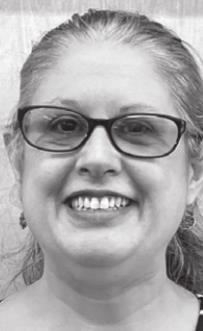
Photo from Metro Creative

Answers to Go
SAN MARCOS PUBLIC LIBRARY
625 E. HOPKINS ST.
512-393-8200
Q. I have heard that Hays County government is considering a Public Defender’s Office. What is a Public Defender’s Office?
A Public Defender’s A. Office is a government or nonprofit sponsored office whose purpose is to provide low-income (indigent) criminal defendants representation by court-appointed lawyers who are paid by the government. Under a public defender’s office, attorneys represent indigent persons full time for their entire caseload, have salaries and benefits, abide by caseload limits set out by the Texas Indigent Defense Commission, a Texas state government office, and work in teams with investigators, social workers and other support staff.
The Sixth Amendment of the United States Constitution guarantees the rights of criminal defendants. It sets into law, among other rights, the right to counsel — a lawyer. The U.S. Supreme Court case Gideon v. Wainwright (1963) held that the Sixth Amendment’s right to an attorney provision requires the government to provide legal counsel to indigent defendants in criminal cases. Thus, all criminal court jurisdictions must have a process or procedure to ensure that defendants are represented by counsel. Different jurisdictions use different approaches to providing counsel for criminal defendants, and the definition of “indigent” can vary between jurisdictions. Currently, in Hays County a person is usually eligible for a court-appointed attorney if their family income does not exceed 125% of the Federal Poverty Guidelines. Other factors may also be considered. (Indigent defense)
How does a public defender’s office differ from the current system in Hays County? The only model Hays County currently uses to provide legal defense to indigent defendants is called “Private Assigned Counsel.” Under the assigned counsel model, private attorneys operate as independent contractors for the county and are paid hourly or by the motion. Private assigned counsel do not normally have in-house support, mentoring, supervision, training or accountability. Since there is no direct boss above a low-income person’s private assigned counsel, indigent defendants have few options to aid against poor performing private assigned counsel attorneys. The quality of counsel from attorneys under the assigned counsel models varies widely. Research has shown when compared to the model of assigned counsel, public defender offices have been found to reduce days of pretrial incarceration, get cases dismissed or acquitted more often, and secure shorter sentences for their clients who are convicted or plead guilty. (Mano Amiga) This results in fewer incarcerated individuals. Incarceration costs taxpayers’ money. Because Hays County cannot house all the detainees it arrests, it must pay other counties to hold them. For example, during the week of April 4, Hays County paid $110,005 to outsource an average of 235 detainees in jails around Texas. (Public Defender’s Office) Detainees are also kept for much longer periods of time and this cost adds up. Housing detainees costs, too. Hays County passed a $100 million bond in 2016 to expand our current jail. The bottom line is that incarceration costs and the less time a detainee spends in jail, the less the cost.
Local organization Mano Amiga, working with County Commissioners Lon Shell and Debbie Ingalsby, have been instrumental in moving this project forward. On August 24, 2021, the Hays County Commissioners Court unanimously approved funding for the creation of the public defender’s office. $5 million of American Rescue Plan funding was earmarked for the creation of a public defender’s office.
For more information about the constitution and the rights of criminal defendants, the library has the following materials:
• “A More Perfect Union: What We the People Can do to Protect our Constitutional Liberties,” by Ben Carson
• “A User’s Guide to Democracy: How America Works,” by Nick Capodice
• “Arrested: What to Do When Your Loved One’s in Jail,” by Wes Denham
• “Key Constitutional Concepts” (DVD)
• “Presumed Guilty: How the Supreme Court Empowered the Police and Subverted Civil Rights,” by Erwin Chemerinsky
• Indigent defense. Hays County. (n.d.). Retrieved April 23 from hayscountytx.com/indigent-defense/
• Mano Amiga. MANO AMIGA. (n.d.). Retrieved April 23, from manoamigasm.org/
• Public Defender’s Office. San Marcos Record. (n.d.). Retrieved April 23, from sanmarcosrecord.com/public-defenders-office
• Texas Appleseed Fair Defense Project. (2000, December). The Fair Defense Report Findings and Recommendations of Indigent Defense Practices in Texas. Retrieved April 23 fromtexasappleseed.org/sites/default/files/185-FairDefense-ReportFindingsReccomendations.pdf
Suzanne Sanders is the new columnist for the library. She is the Community Services Manager for the San Marcos Public Library and came from the Austin Public Library in 2015 after having served there as a librarian for over 20 years. She gratefully accepts your questions for this column.











